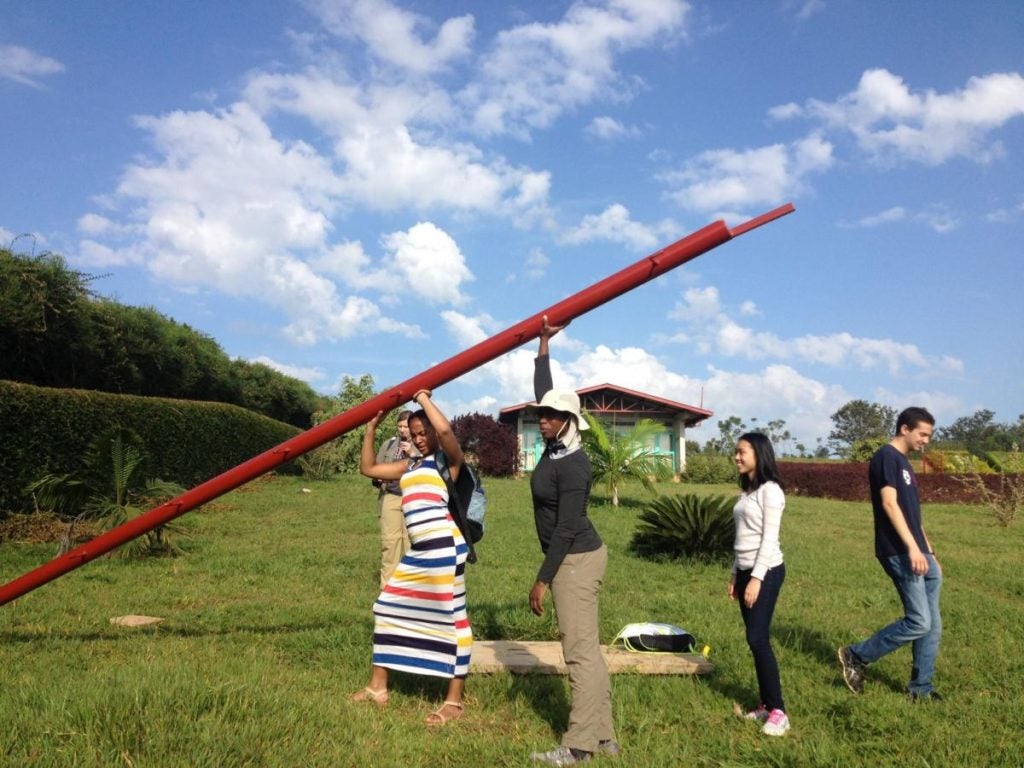
Penn Students Build Solar Powered Water Filtration and Lighting Systems in Rwanda
This summer, the Kleinman Center sponsored student trips to Rwanda with Penn Engineering. While there, the students worked on a solar energy water filtration project at the Gashora Health Center and a solar lighting project at the Gashora Girls Academy.
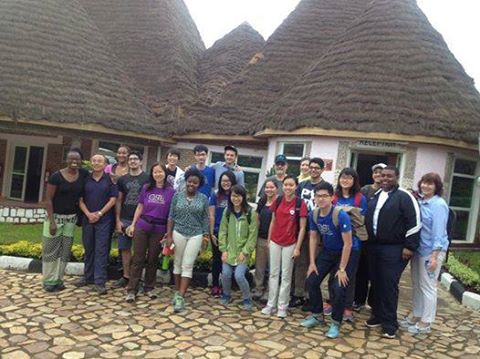
The first stop on the trip was to the Gashora Health Center. Students examined the current water filtration system and developed a plan to connect the water supply from the local lake to the filtration system using solar energy. Unfortunately, not all the supplies arrived in time so they were unable to implement the new filtration system.
Season rainfall is the currently the only source of water for the water filtration system. This is not ideal for an area like Gashora where the rainy season is about 2-3 months. Water borne illnesses and deaths have been a rising issue in the community and having access to clean water is an important step to preventing this problem.
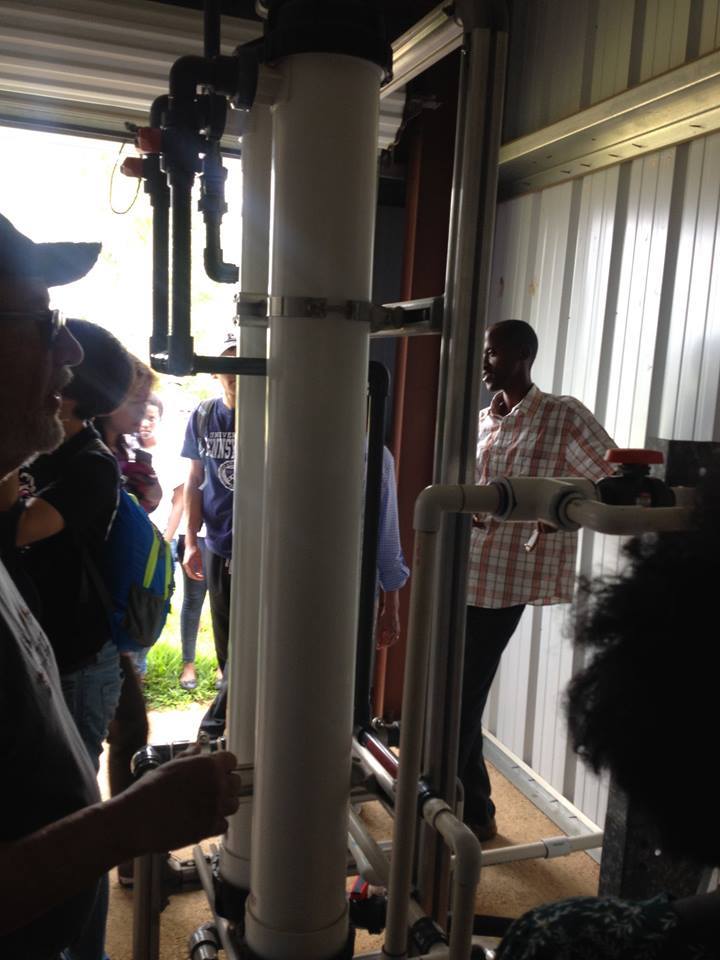
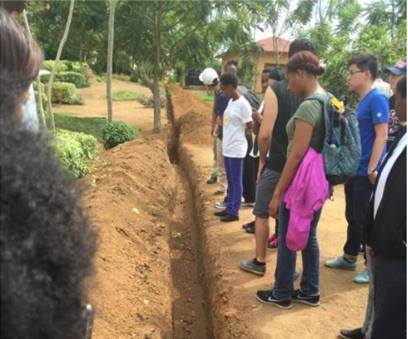
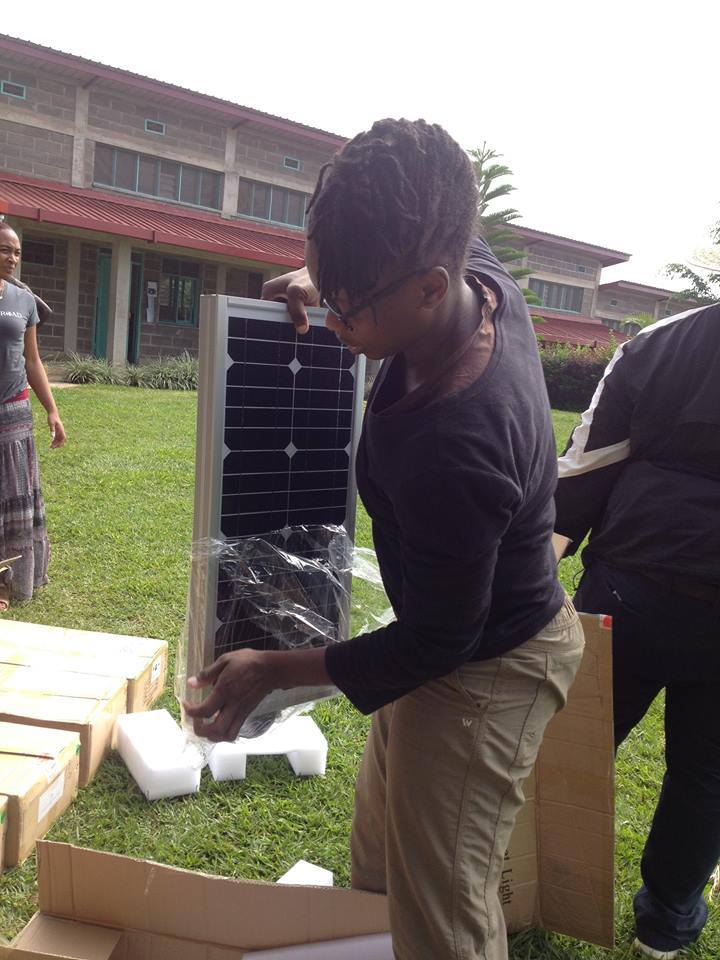
Students also worked to install solar panels and assure that the Gashora Girls Academy has access to lights and electricity. Access to light and electricity is so important in the education of young girls and boys. Without continuous reliable supply of electricity, many kids around the globe are at a disadvantage compared to their counterparts in many North American and European countries. The sun is a direct source of energy and using renewable energy from LED solar panels, solar energy from the sun is able to be converted into electricity.
The Penn students tested the LED solar panels and worked with the students at Gashora Girls Academy, and their chief engineer, to unpack and stack the LED panels on the roof of the school. During the daytime, the solar energy from the sun will charge the LED lights and the energy will be stored as potential energy. When night falls, the campus will be lit for 8 hours at the brightest dial and 30 hours at the dimmest dial. Now the girls can stay up late to study or gaze at the night stars.
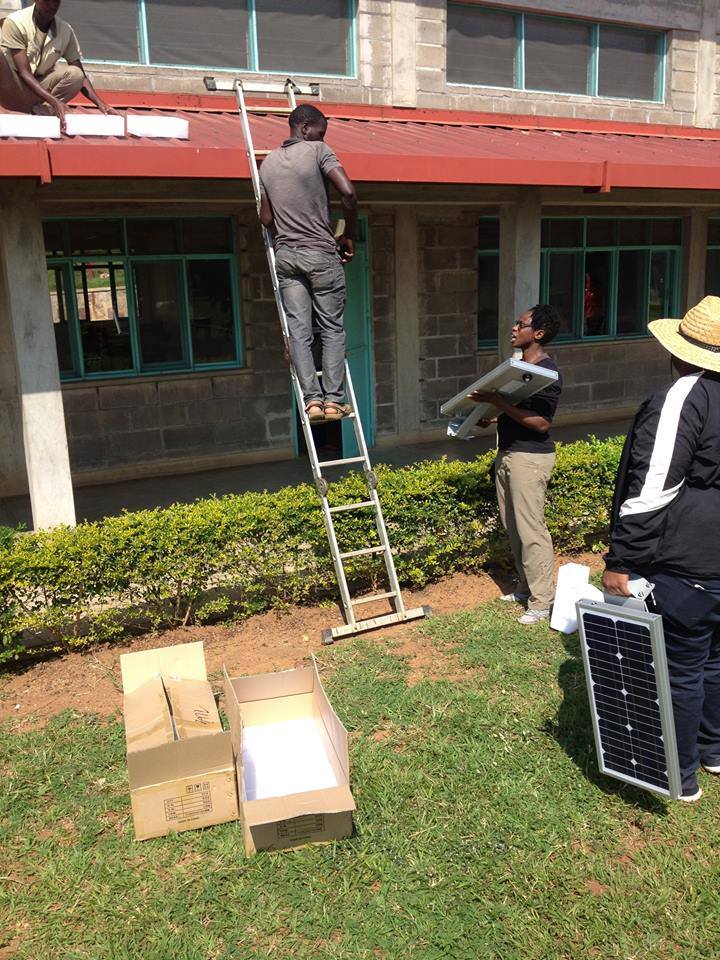
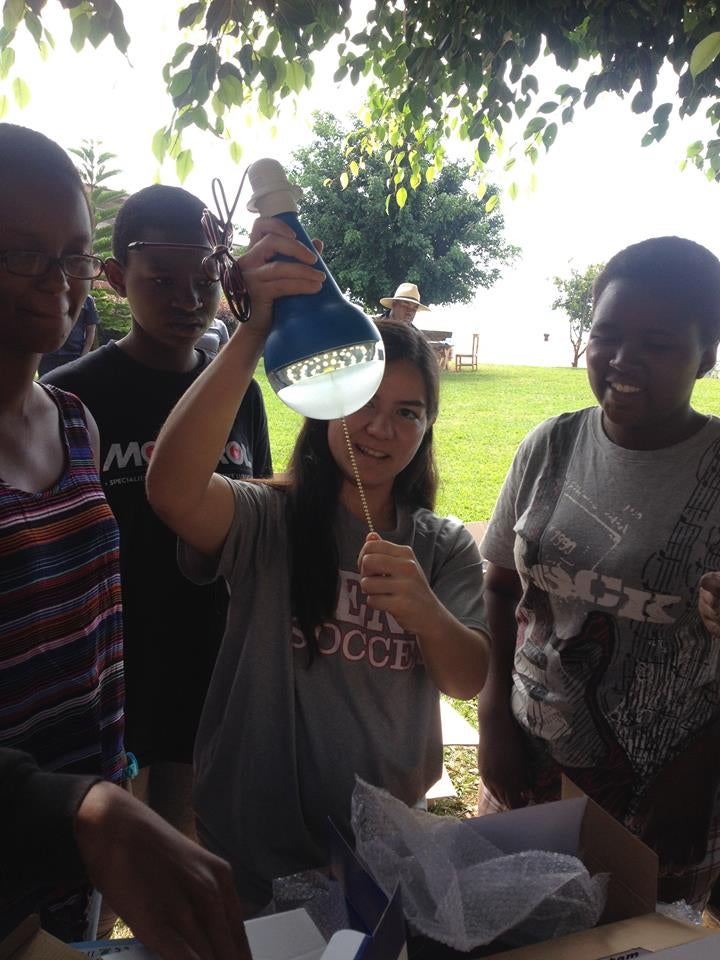
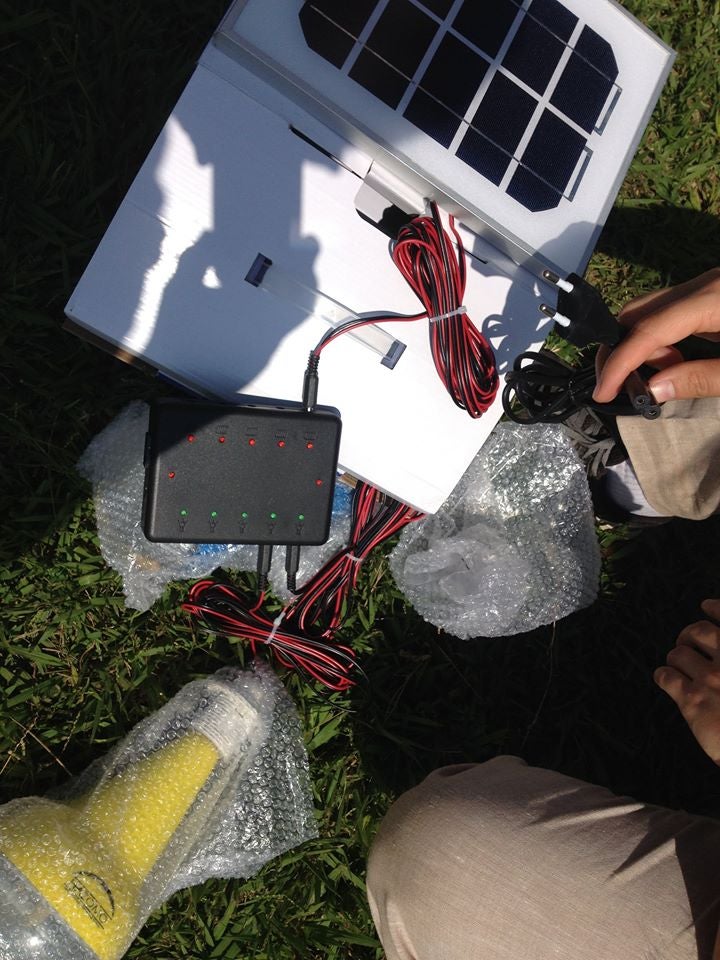
The Penn students also taught the students at Gashora Girls Academy how to set up solar powered lighting for their campus and the women’s cooperative in their community.
The coop is an all-women’s economic empowerment initiative through the creation and sale of beautiful weaved baskets. The light from the solar panel allows them to have electricity during the evening and night. The women can also rent the bulbs and controller, to plug in cellphones and generate more income.
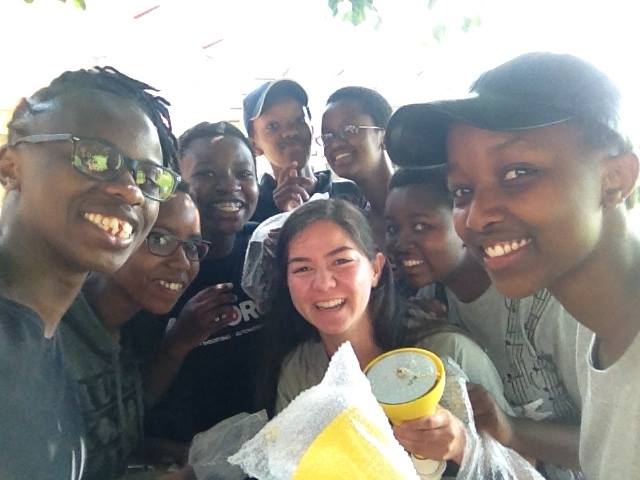
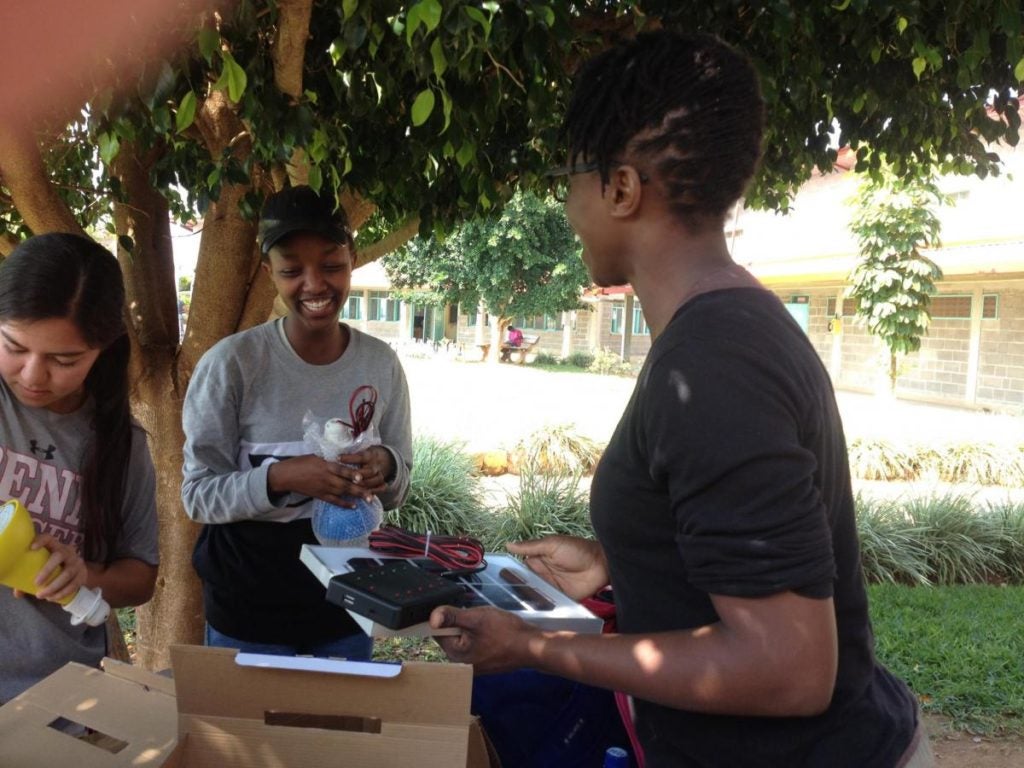
This increase in lighting will also provide a higher level of saftey for the women and girls. The Penn team set up 20 lights like the one seen below all across the campus.
